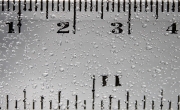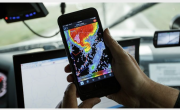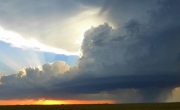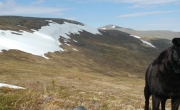Summer 2021 | The DTC, with Subject Matter Experts from NOAA's Environmental Modeling Center, National Severe Storms Laboratory, and Geophysical Fluid Dynamics Laboratory, had a training session for the Unified Forecast System (UFS) Short-Range Weather (SRW) Application, Sept 2021. Here is the Practical session focused on teaching community users… Read More
Announcement: UNIFIED FORECAST SYSTEM (UFS) SHORT-RANGE WEATHER (SRW) APPLICATION USERS' TRAINING

Summer 2021 | The Developmental Testbed Center (DTC) is pleased to announce that registration for the Unified Forecast System (UFS) Short-Range Weather (MRW) Application training is now open! The SRW Application targets predictions of regional atmospheric behavior out to several days; more details on the first SRW App release can be found at: https://ufscommunity.org/news/srwa/. The training will be a live, yet virtual, event held September 20-24, 2021. Lecture and hands-on practice sessions will be provided by subject matter experts… Read More
Software Release: METplus v4.0.0 Coordinated Release

2021-05-14 | The DTC is pleased to announce the release of the multi-component verification framework called the enhanced Model Evaluation Tools (METplus), or METplus. METplus contains a suite of Python wrappers and ancillary scripts to enhance the user's ability to quickly set-up and run MET. METplus also has an analysis suite including METviewer and METexpress user interfaces and METdatadb, METcalcpy, and METplotpy as shared packages for loading and storing MET output as well as aggregating and plotting results.… Read More
Lead Story: UFS Metrics Workshop Refines Key Metrics

Spring 2021 | The Developmental Testbed Center (DTC), in collaboration with the National Oceanic and Atmospheric Administration (NOAA) and the Unified Forecast System's Verification and Validation Cross-Cutting Team (UFS-V&V), hosted a three-day workshop to identify key verification and validation metrics for UFS applications. The workshop was held remotely 22-24 February 2021. Registration for the event totaled 315 participants from across the research and operational community. … Read More
Who's Who: Evelyn Grell
Spring 2021 | Evelyn Grell’s story begins in a suburb of Philadelphia, PA where she was raised. Her interest in weather was inspired from spending time with grandparents on the Jersey shore. Her grandfather was an avid sailor and even built his own sailboat. Naturally, monitoring the weather and especially the wind direction was essential before setting sail. Evelyn never seriously considered meteorology as a career… Read More
Bridges to Operations: Growing the WPC HydroMeteorological Testbed: Immersive Forecasting and New Perspectives

Spring 2021 | The Hydrometeorological Testbed at NOAA/NWS/NCEP Weather Prediction Center (WPC) is a naturalistic decision-making environment, a physical space, a collaboration space, and an insight-generating laboratory. We explore observations and models (Numerical Weather Prediction, Machine Learning and statistical models) in order to evaluate, validate and verify weather-forecasting procedures, tools, and techniques. … Read More
Community Connections: DTC Embarks on International Project to Provide Information about Model Physics Uncertainty

Spring 2021 | The “Model Uncertainty Model Intercomparison Project” (MUMIP) is an international effort to better understand model-physics uncertainty, and how to represent it in stochastic physical parameterizations. After all, physical parameterizations provide an approximate solution to physical processes occurring in… Read More
Did you know?: UFS Short-range Weather Application Version 1.0 has been released
Spring 2021 | The latest Unified Forecasting System (UFS) application to be released is the Short-Range Weather (SRW) Application, which targets predictions of atmospheric behavior on a limited spatial domain and on time scales from less than an hour out to several days. The SRW Application version 1.0… Read More
Announcement: Announcing the CCPP and SCM v5.0.0 online tutorial

2021-04-22 | The Developmental Testbed Center is pleased to announce that an online tutorial is now available for the Common Community Physics Package (CCPP) v5.0.0 and the CCPP Single Column Model (SCM) v5.0.0. The goal of this tutorial is to familiarize CCPP beginners with its key concepts: 1) how it is used within host models, 2) what makes a piece of code compatible with the CCPP, and 3) how collections of physics parameterizations are organized into suites. It includes lecture-like videos followed by hands-on exercises. The… Read More
Director's Corner: Reflections on community-wide physics development for operations
Lisa Bengtsson

Spring 2021 | My involvement in model physics development and coordination for operational use, in both Europe and the U.S., has afforded me an interesting and rewarding perspective on the unique philosophies and approaches taken along the path of research to operations on both sides of the Atlantic. In many ways, the challenges faced by large organizations or collaborative consortiums when developing/selecting physics for operations are very similar for Europe and the U.S. For instance, when… Read More
Visitors: Boreal Scientific Computing Mobile Headquarters
Visitor: Don Morton

Spring 2021 | My projects with the DTC Visitor Program have been high points in my 30+ year career as a computational scientist interested in atmospheric sciences. In 1986 as a Staff Sergeant in the United States Air Force, I discovered my deep interest and aptitude in computer science, and uncovered a new fascination with science, especially the geophysical kind. It inspired me to chart a course towards finally finishing my BS degree and explore graduate school with the notion of applying… Read More
Announcement: DTC Workshop on Integrating Cloud and Container Technologies into University Numerical Weather Prediction (NWP) Curriculum

2021-03-25 | Are you a professor teaching a Numerical Weather Prediction (NWP) class or who has been wanting to integrate aspects of NWP into your curriculum? Have you wanted to give your students hands-on, practical NWP experience but never had the resources? This workshop is for you! The DTC will be hosting a virtual… Read More
Software Release: CCPP and SCM v5.0.0

2021-03-08 | The Developmental Testbed Center is pleased to announce the Common Community Physics Package (CCPP) v5.0.0 public release on March 08, 2021. This release contains the CCPP-Physics, a library of physical parameterizations, the CCPP-Framework, an infrastructure that connects the physics to host models, and the CCPP Single Column Model, a simple host model that employs the CCPP-Physics and CCPP-Framework. Additional information and access to the code can be found here. The CCPP-Physics is envisioned to contain… Read More
Software Release: UFS SRW App v1.0.0 release

2021-03-04 | The UFS Short-Range Weather (SRW) Application v1.0.0 was publicly released on 3/4/2021. A news article is available at https://www.weather.gov/news/210403-ufs and a full release description can be found at https://ufscommunity.org/news/srwa. This is the first major release of the application that targets predictions of atmospheric behavior on a limited spatial domain and on time scales from less than an hour out to several days. The UFS SRW App is the foundation for building NOAA’s future convection-allowing ensemble… Read More
Software Release: Announcing UPP V9.0.0 Release

2021-03-04 | Dear UPP Community, The Developmental Testbed Center (DTC) is pleased to announce the release of the Unified Post Processor Version 9.0.0. This release marks another major change in the UPP code base, by adding support for the newly released Short-Range Weather Application (the limited-area application of the Unified Forecast System) and discontinuing support for WRF and GRIB1 data. … Read More
Pagination
Copyright © 2026. All rights reserved.